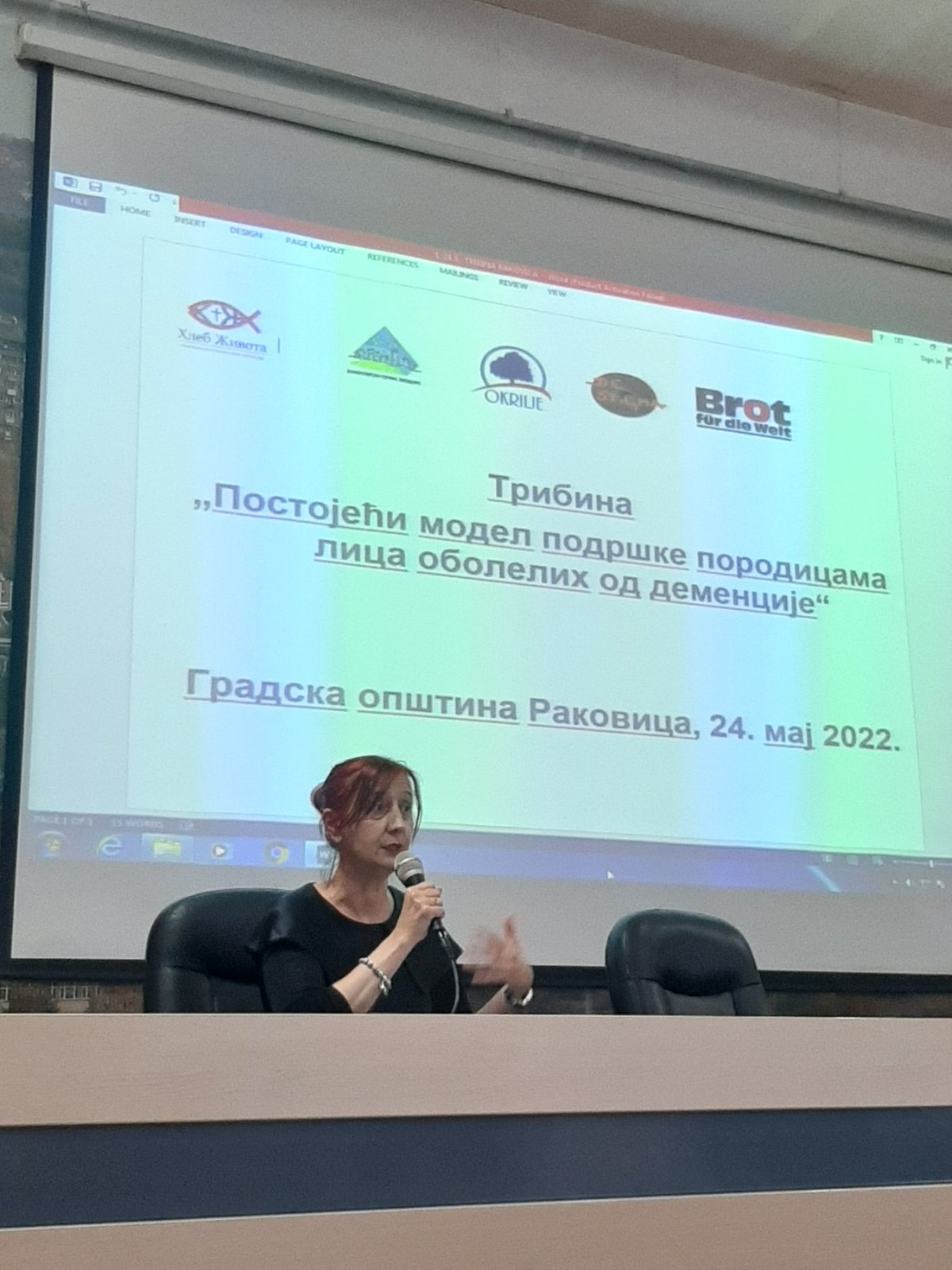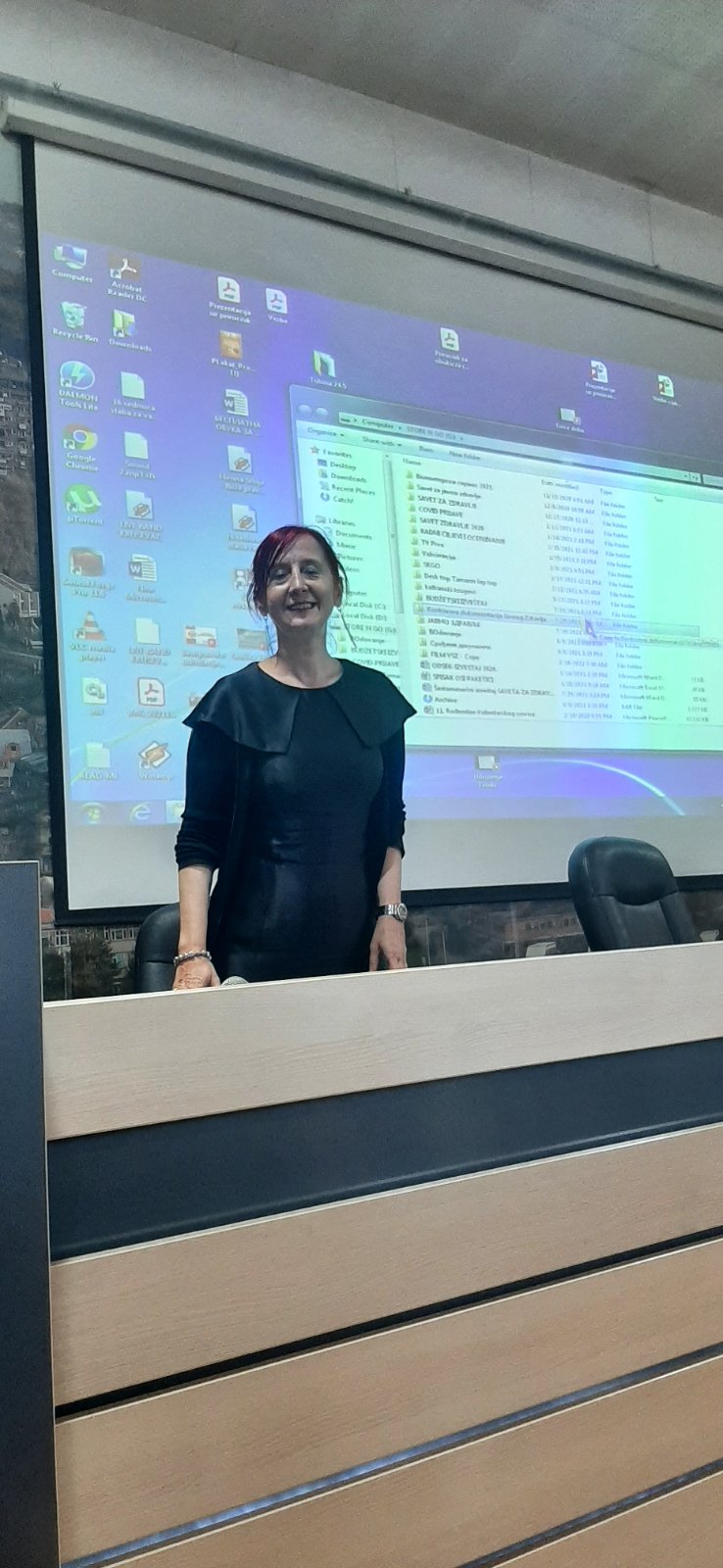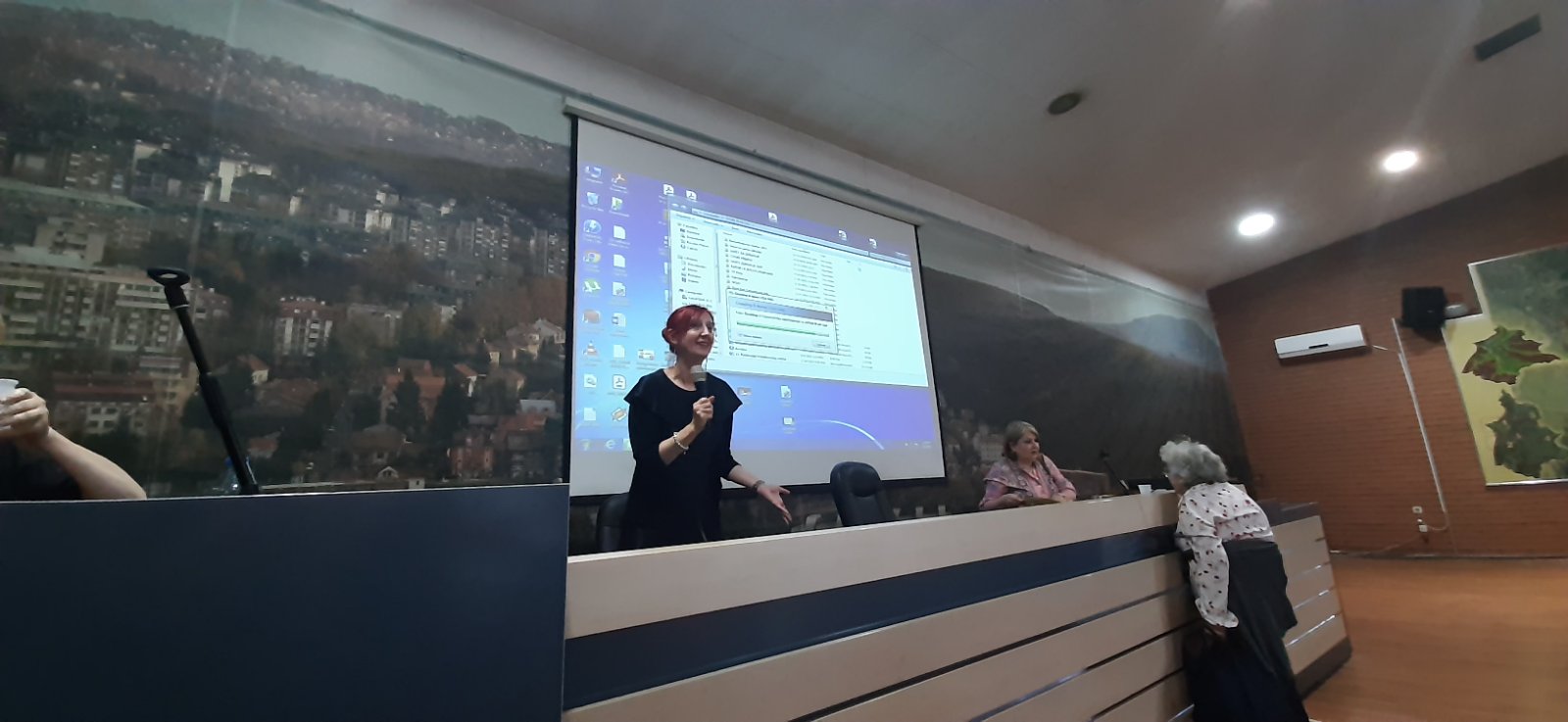Panel discussion “Existing model of support for families of people with dementia”

On May 24, 2022, a panel discussion entitled “Existing model of support for the families of people with dementia” was held in the premises of Rakovica municipal administation. The forum was organized by an informal network of helpers for families with dementia, which includes HHU Hleb života, Volunteer Service Zvezdara, UG Okrilje, UG Destigma and with the support of the HumanaS network. In addition to the representatives of the Red Cross of Serbia, the panel discussion was attended by representatives of the City Institute of Gerontology, the City Institute of Public Health, the Institute of Mental Health, the Gerontological Center Belgrade, and the Center for Social Welfare Rakovica.
Estimates show that more than 55 million people (8.1% of women and 5.4% of men over the age of 65) live with dementia. It is estimated that this number will increase to 78 million by 2030 and to 139 million by 2050. But it is not only people diagnosed with dementia who suffer, but also their families. It is wrong to think that dementia only affects memory, it affects the performance of daily activities, and disability related to dementia produces expenses, which mostly have to be covered by the family.
The representative of the Red Cross of Serbia, Natasa Todorovic, spoke on the topic “Living with dementia in the modern world” and pointed out that the care needed for people with dementia includes primary health care, specialist services, community services, rehabilitation, long-term care and palliative care, medication for dementia, hygiene products, assistive technologies and household adaptation. The type and level of services provided by health and social systems also determine the level of informal care, which is primarily provided by family members. Informal care accounts for about half of the global cost of dementia, while social care costs account for over a third. In 2019, caregivers spent an average of five hours a day providing support for the daily life of the person they cared for, 70% of that care was provided by women.
A necessary step in providing support and dignity is the use of modern technologies, which can be used to support both caregivers and persons with dementia. For that purpose, the Red Cross of Serbia will use tablet computers for cognitive exercises with people diagnosed with dementia in order to improve their health.
Dementia takes away from millions of people their memories, their entire previous lives, takes away their families, takes away their dignity and independence, but we also lose something, we lose them. Dementia takes away people we know, love, takes away people we are attached to. The modern world is still not a place that provides dignity for people with dementia and their families, they are still invisible, betrayed and isolated. We have not yet managed to provide them with support, nor a sufficient number of trainings, nor community services, nor respite services, we do not use new technologies for the purpose of improving health.

Science has advanced, technology has advanced, the rights-based approach has taken its place, but in the 21st century we still have a lot of stigma, prejudice and discrimination against persons with dementia and their families, which increases the already negative impact on psychological, social, emotional and financial aspects of their lives. Let's give them back their dignity - it's high time.

